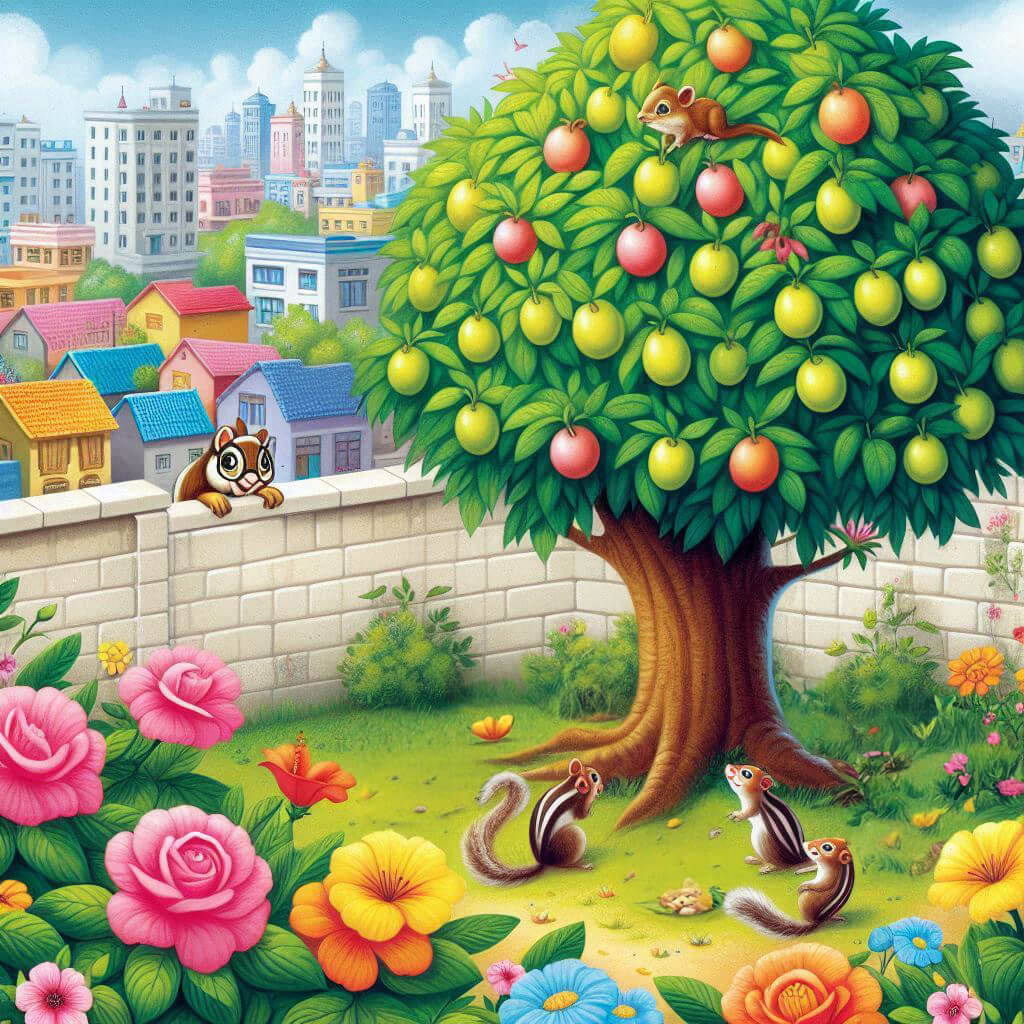Read by Matilda Longbottom

In the bustling cities of India, gardening is not just a hobby; it’s an adventure. Every dedicated gardener battles pollution, mischievous animals, and even human skeptics who see plants as nuisances. Growing up, gardening was a family affair for us. In the warm, coastal climate of southern India, my mom sowed vegetable seeds, my dad nurtured cacti that lined our house, and I climbed our mango and guava trees to pluck the fruits.
Plucking these fruits was no easy task; it was more of a “girl versus chipmunks” showdown. The chipmunks’ shrill chattering was like a never-ending alarm. I would shout offers of peace, promising to leave some fruits for them if they quieted down. Surprisingly, it worked—our truce was based on mutual respect and shared guavas.
Our guava tree, a member of the Myrtaceae genus Psidium family, was the crown jewel of our garden. It took years to grow from a tiny plant into a robust tree, surviving threats from hungry cows and stone-throwing kids. Despite these challenges, it flourished, offering us the sweetest, juiciest guavas twice a year.
Then, a new neighbor moved in next door, constructing a house that seemed to consume every inch of their plot, leaving no room for plants. Their roof even stretched over our fence, casting a shadow over our rose plants. My father and I wanted to confront them, but my mother, ever the peacemaker, suggested moving the plants to our terrace.
However, our new neighbors had a habit of sending their maid over with complaints about our beloved guava tree. “Too many chipmunks,” “too many leaves,” “too much dust,” and other grievances became regular annoyances. We even sent our garden helpers to clean up their yard every day.
The final straw came when the maid demanded we cut down our guava tree. My mother, usually calm, firmly replied, “Tell your mistress that her house pillar, which stands touching our wall, breaks civil rules. We’ll cut it off before our guava tree.” The maid left, speechless. After that day, we had no more complaints.
We still share our guavas with our neighbors, a silent thank you for their newfound quiet. We also raised our fence and installed security cameras to protect our treasured tree.
One night at dinner, my mother shared a peculiar story. “Do you remember when I said ‘all happens for good’ while touching our guava tree during that argument? It felt like the tree was speaking to me, warning us about future threats.”
Maybe it was just a feeling, or perhaps our guava tree really did communicate with us. Either way, the message of “all happens for good” has stayed with me, reminding me to always look for brighter, greener days ahead. ❖
Author Bio: When she’s not writing algorithms, teaching, gardening, or drinking copious amounts of tea, Vasanthi Varadarajan traces her footsteps back to the little happenings that fascinated her as a young girl in a diverse culture. “Message from a Guava” is one such story, a tribute to all garden whisperers.


 Previous
Previous


This is a wonderful story and takes me back to my young days living in Hawaii when we had a beautiful guava tree on the back side of our house. Without too much sun, I don’t know how this guava thrived but it did and we were fortunate our neighbor didn’t complain, however, it never reached into her property. I also remember the delicious guava jam my mother made from these delicious fruits and I finally found a jar-only last month and after all of these decades- at my supermarket that was the actual preserves with guava in it! You don’t know how happy I was to find it-coming from Mexico, I believe! Thank you so much for a wonderful remembrance! They have to be protected where I live or else this yard would be full of guavas, mangoes and papayas as well! I feel like we are cousins, ha!